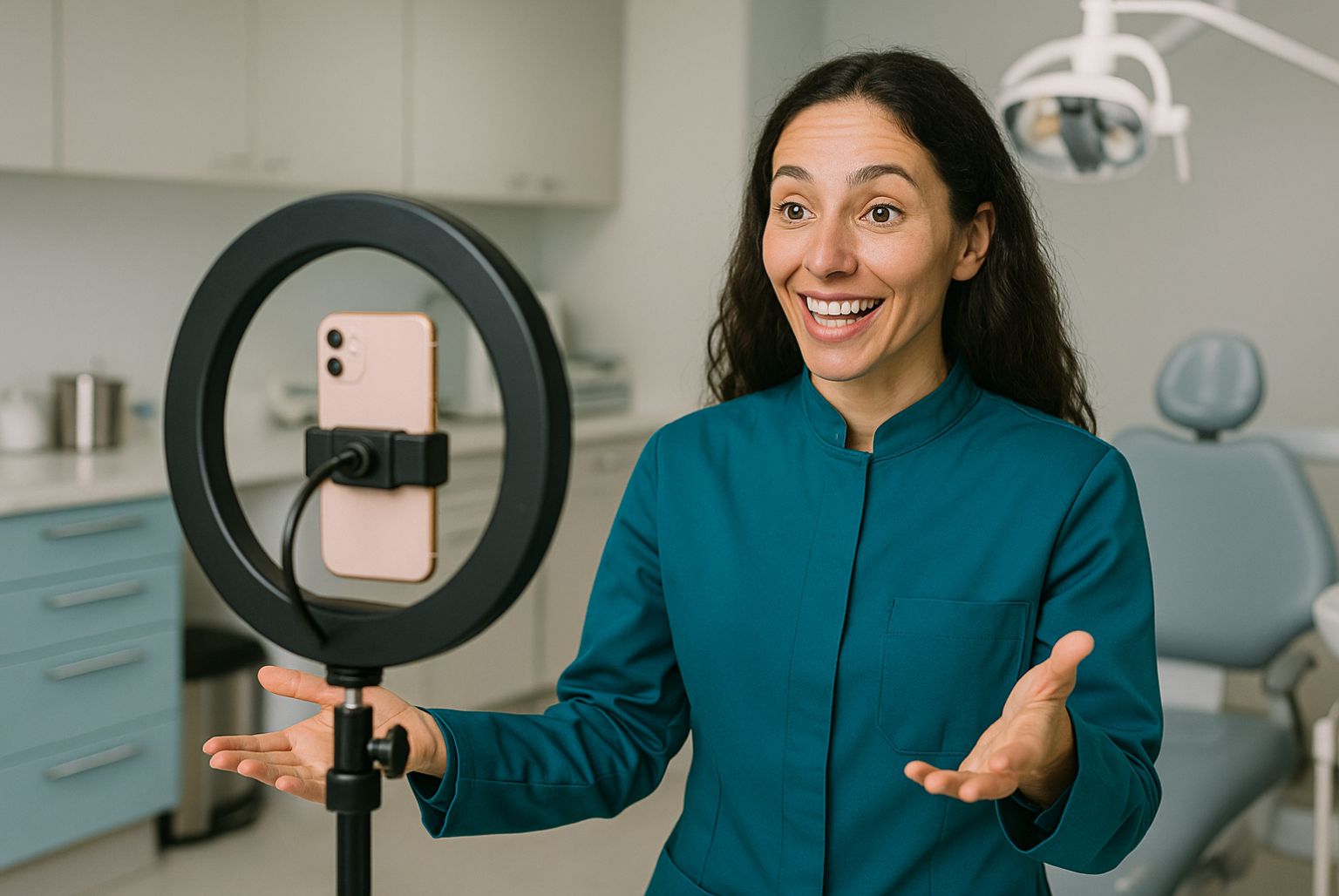As a digital marketing agency in Nottingham, we’re well-versed in all things SEO, analytics, and marketing. It’s why we’re one of the leading names for aesthetics and dental marketing in the UK, with hundreds of happy clients behind us.
Today, we’re focusing on SEO and looking at dental SEO in particular. In our handy guide, you’ll find out what it is, why it’s useful, and how to set it up for your dental practice.
What is SEO for Dentistry?
SEO stands for ‘search engine optimisation’. As you no doubt know, Google is the leading search engine in the world, and many dental practices are discovered by patients searching for treatments in their area. The better the SEO on your website, the higher you’ll be listed on Google’s search results pages, which means you’re more likely to get traffic to your website (and by extension, secure bookings). In fact, analysts have found that when looking up a new dentist, 70% of people click one of the top 5 results shown.
How Does SEO Work?
At its most basic, SEO involves cleverly weaving terms that your patients search for into your online presence, whether it’s social media accounts, websites, your blog, or something else. SEO is an important part of your strategy – so much so, that you can’t afford to overlook it. In other words, if you want to be found online, you need an SEO dental marketing strategy.
What Are The Benefits of SEO?
There are so many advantages, including:
– Driving traffic: as we’ve mentioned, the more traffic, the greater the likelihood someone will make a booking. It also means you’re not the one reaching out to potential patients, and wasting time and money on someone who’s not interested in your treatments. In fact, you’re preaching to the converted – they’re actively looking for what you have to offer.
– Building trust and credibility: as one of the top results, people will think you’re a leading dental practice (and you might well be). And, with increasing clicks to your website, Google will also think you’re trustworthy and keep showing you to potential patients.
– Better experiences: SEO isn’t just about keywords, although that’s a large part of any successful dental SEO strategy. It’s also about snappy loading times, mobile-friendly and responsive design, ease of navigation, and relevant content.
How Does Google Decide What Makes Top Spot?
The Google algorithms remain largely a mystery, but there are some things we know about – like keywords (which should be in every place on your website, including things like headers and web URLs), the quality of your copy, and your website’s age, load speed and layout. The more you invest in your SEO, the better the outcome for your dental practice.
What About Link Building?
That’s a really important part of SEO, and essentially refers to other websites or online places that link to your website. Some of the same things apply here, like how recent the link is (and how old the website is), how popular it is and whether it’s a trustworthy source.
How Do I Create a Dental SEO Strategy?
There are a few steps you need to follow to improve your dental SEO:
1. Set up a dentistry website: We’d recommend WordPress, which is easy to use, scales to devices, and has flexible design templates.
2. Create a custom design: While we’ve mentioned templates, it’s even better if you tailor your website more to your patient base and invest in your branding.
3. Create SEO-optimised content for dentistry: Use your unique tone of voice to write content that’s useful, compelling, correct, and up-to-date. Weave in SEO keywords to ensure Google picks up on your web pages.
4. Add a space for patient reviews: It’s one of the biggest factors for patients to decide on a dental practice. You can also link through to review websites, like Trust Pilot.
5. Get link-building: Ensure you’re listed on dental directories and other reputable websites. Its also important to create on-page links to connect all your relevant content together, this help google better determine what your website is truly about.
6. Update your Google My Business listing: Check that your Google Maps location is up-to-date, as well as information like opening times, phone number, and practice photos (you should make sure your website is, too).
What Else Do I Need To Know?
As well as knowing what to do, it’s worth knowing what not to do. Google (and other search engines) will penalise you for certain things, like having missing or broken web pages, enormous video and image file sizes, and not using image alt text (that’s the text that shows when an image doesn’t load, which is also part of accessibility – so those with vision problems can still browse your website through text-to-speech). We’d also recommend avoiding things like outdated media (e.g. Flash).
I’m Still Not Convinced I Need a Dental SEO Strategy…
We’d caution you by saying that most dental practices (i.e. your competition) will no doubt be using their own. And if you don’t keep up with what your rivals are doing, you’ll quickly lose business. In an increasingly digital age, people are searching for you on the internet – and that’s where you need to be, with the right tactics in place to ensure visibility.
How can Cosmetic Digital help?
Digital marketing and dental SEO are our bread and butter, and there’s no one better placed to get your dental SEO strategy up and running. If you want to take the hassle and hard work out of SEO, then give us a call – our friendly Nottingham team will be happy to help.




